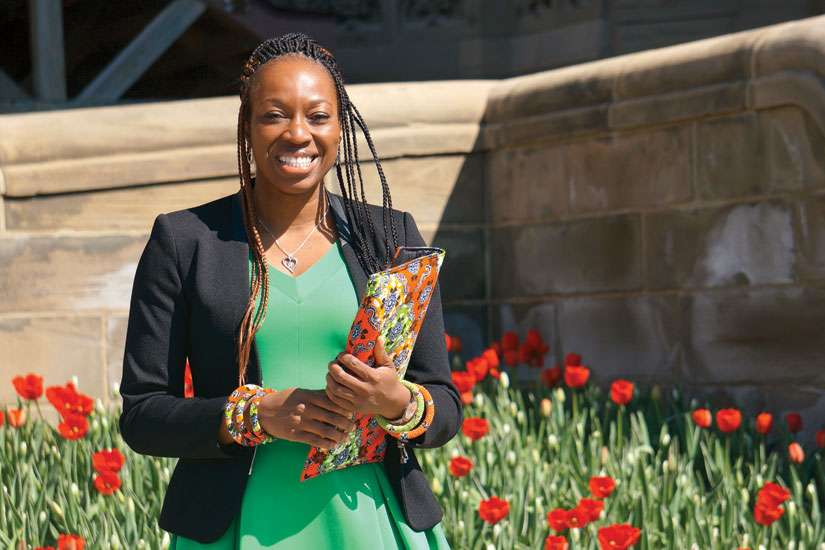At a breakfast meeting May 10, biomedical scientist Obianuju Ekeocha urged about 20-30 parliamentarians to resist imposing abortion on African nations. In an interview after the breakfast, the founder and president of Culture of Life Africa praised Canada’s role in promoting maternal, newborn and child health, an initiative which has excluded abortion funding. But she is concerned that the health initiative will be expanded, with “strings attached,” to include funding for abortions.
The issue of abortion “has already been decided by many African countries,” she said. “They have decided that abortion is an attack on human life at its earliest stages.”
“For a more developed country — and a clearly wealthier nation — bringing to us funding for abortion and a culture of abortion, it reeks of colonialization and it reeks of cultural imperialism.”
Ekeocha said she presented statistics from the Pew Research 2014 Global Morality Survey of 40,000 respondents in 40 countries showing differing perceptions regarding abortion.
In Canada, 26 per cent of those surveyed said they found abortion morally unacceptable, 26 per cent found it morally acceptable and “everyone else fell somewhere in between.”
In Nigeria, 80 per cent found abortion morally unacceptable and only two per cent found it morally acceptable, she said. In Ghana, the opposition was even higher at 92 per cent finding abortion morally unacceptable.
“This then means, if any powerful western nation was to come to African countries to fund abortions, they will have to first find a way to overpower up to 92 per cent of the population and they will be working against the will of the people,” she said.
“A lot of the aid projects right now are coming with strings attached,” she said. “They are heavily fettered to these new sets of values from the West.”
That will mean African nations more accepting of abortion services will be rewarded because “their acceptance is incentivized,” she said. “Those who resist are hit, punished some way or deprived.”
“At all times, African leaders tend to be stuck between aid they think they need for their people and the will and the desire of the donors who come making demands and requests,” she said.
She said it’s not only nations like Canada that give aid to developing countries, but powerful philanthropic foundations such as the Bill and Melinda Gates Foundation, the Ford Foundation and others who “come in and try to trigger social change on matters and issues that the people have already decided.”
Ekeocha lauded Canada’s contribution to maternal, newborn and child health through its Muskoka Initiative launched by Prime Minister Stephen Harper at the 2010 G-8 meetings. This initiative, which excluded abortion funding, has done great work in the developing world, she said.
But the new Liberal government has indicated a shift to have “this funding stream include abortion services as well,” she said.
“This new approach seems to me to be ideologically driven,” she said.
Ekeocha said she reminded the parliamentarians of Pope Francis’ speech before the United Nations last year, where he spoke of ideological colonialization. This is a form of neo-colonialization, she said.
She urged Canada to focus on areas that would genuinely help developing nations reduce maternal and infant and child mortality rates.
The World Health Organization says more than 30 per cent of maternal deaths are due to bleeding following delivery.
“So how about more of the effort be put on improving blood-banking systems in African nations?”
Many African women must deliver their babies without professional health care — no doctor, no trained nurse or midwife and that means that needless, preventable problems like obstructive labour and breech birth are big problems, she said.
“What I hope and I am looking forward to seeing is the Canadian government working side by side with the Africans rather than telling us what we should do,” she said. “That I will be grateful for.”
Ekeocha was in Ottawa to address the National March for Life on May 12, where she was a keynote speaker at the March’s annual Rose Dinner.


